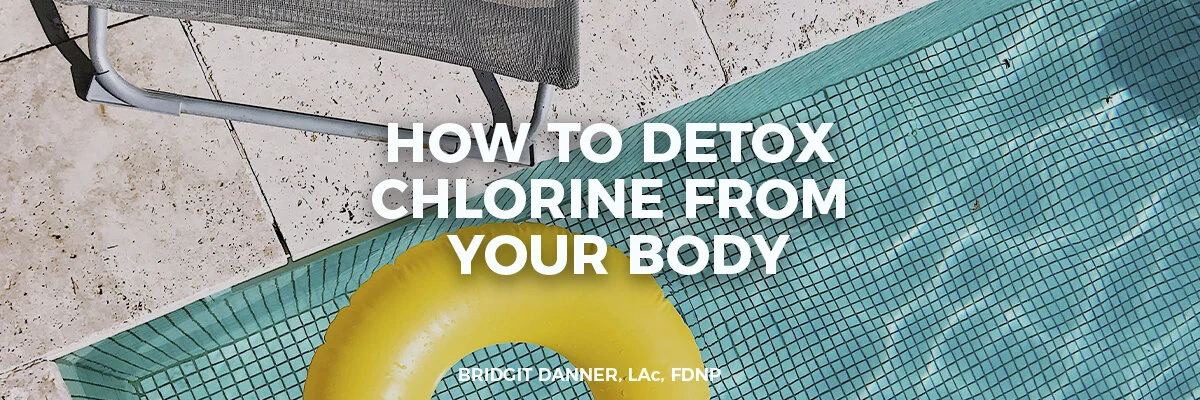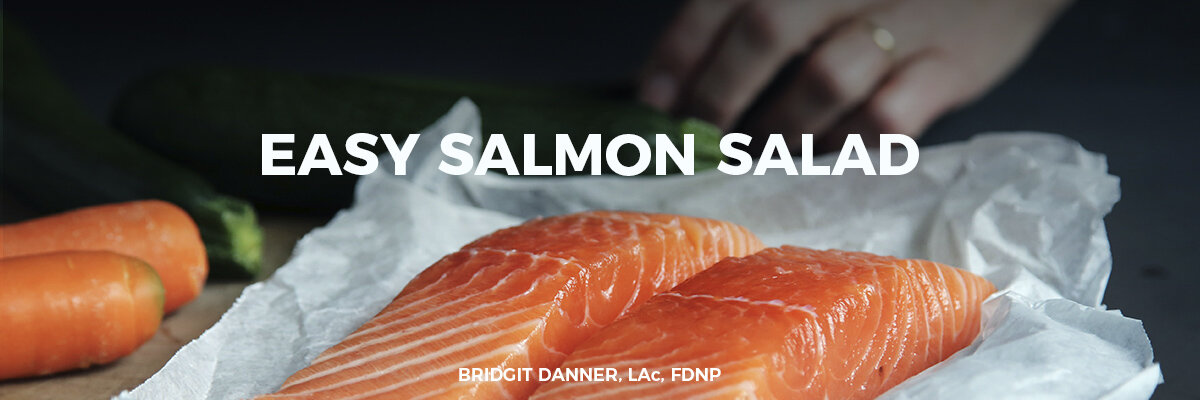One of the more remarkable aspects of the human body is its fight or flight response system. When we perceive danger, our nervous system springs into action. The sympathetic nervous system provides us with a burst of energy to handle the stressful situation. Then, the parasympathetic nervous system helps us calm down after the danger has passed.
In other words, the sympathetic system works like the gas pedal in your car, and the parasympathetic system works like the brake. But what happens if the gas pedal gets stuck after you have escaped a dangerous situation?
Lately, I've been exploring how the stress of mold and chronic illness can cause us to get stuck in a sympathetic response even after we have identified and removed the cause of our illness. How can you help your body get "unstuck”?
With this article, I'll share how to recognize if you have sympathetic dominance due to mold and chronic illness and ways you can detoxify and calm your body to reduce this internal alert and begin healing.
Why Your Body Gets "Stuck" in Fight Mode
If you're like many of us who have dealt with mold and chronic illness, you've already been down a long road. You may have been told more than a few times, "It's all in your head." However, it’s even more discouraging to find that your symptoms persist even after the mold or other sources of your illness have been removed.
It's not all in your head! And Dr. Robert Naviaux's cell danger response theory can help us understand what is happening. The founder of the Mitochondrial and Metabolic Disease Center and Professor of Medicine, Pediatrics, Pathology, and Genetics at the University of California San Diego, Naviaux maintains that chronic diseases often persist despite the removal of triggers. (1)
The cell danger response is the natural way our mitochondria protect themselves and our bodies from threats such as toxins and other environmental stressors, infections, and physical and psychological trauma. The response also helps our bodies recover after an injury.
However, Naviaux explains that chronic disease can result when cells get caught up in a repeating cycle of incomplete recovery and re-injury, unable to heal fully. Cell danger responses can lead to tissue damage, hormone and chemical imbalance, inflammation, and changes in insulin levels. (2, 3)
What Are Signs Your Body Is Stuck?
If your body is constantly at a high-alert level -- whether the threat is still there or your body just thinks it is -- you will experience many of the physical and psychological signs of chronic stress. The physical symptoms can include:
Weakened immune system, making you more susceptible to infections and diseases
Increased blood pressure, which could put you at risk of cardiovascular disease
Changes in appetite, which could lead to weight gain or weight loss
Sleep disorders
Fatigue
Stomach upset
Chest pain
Dizziness
Teeth grinding
Diarrhea or constipation
Muscle tension
Headache
The psychological symptoms can include:
Mood swings
Low energy
Nervousness
Restlessness
Lack of ability to focus
Lack of motivation
Anger or irritability
Memory problems
Poor judgment
Feeling overwhelmed
Lack of energy
Stress can make us act in ways we might not otherwise, promoting us to change our eating and drinking habits or develop nervous conditions, such as nail-biting or chewing on pens and pencils. Chronic stress can lead to burnout.
To help you find out where you fit in on the spectrum of brain health, Dr. Daniel Amen, one of the nation's leading brain health specialists, has a brain health assessment quiz you can take online.
What Are Some Solutions for Sympathetic Dominance?
There are many ways to de-stress the body so that it can focus better on healing. The trick is finding what method or methods work best for you. Here are some of my personal recommendations.
Tip 1: Essential Oils
When it comes to calming your mind and de-stressing, I am a big believer in essential oils. For details on the seven essential oils I recommend and why, please see my earlier blog post here.
In her book Essential Oils to Boost the Body and Heal the Brain, Jodi Cohen explains how plant-based essential oils can help calm the nervous system and heal the body. According to Cohen, essential oils interact in a positive way with our biochemical pathways and nervous systems, calming inflammation.
One of Jodi’s favorite techniques involves massaging the vagus nerve and the lymphatic tissue on the sides of the neck. She explains that she starts from behind each ear and then rubs the essential oil down her neck on both sides. She combines the message with three to five deep inhalations in each nostril as a relaxing bedtime routine. (4)
Some of my favorite calming oils are lavender, rose and ylang ylang and I like sandalwood, cedarwood and clary sage for grounding.
Tip 2: Breathwork
Breathing is the one involuntary action that we can control, and when we do, it can have amazing calming effects. I recommend practicing some conscious deep breathing exercises each day. Try an easy five-count inhale and seven-count exhale for almost immediate results.
Tip 3: Lymph Movement
The body's lymphatic system plays an integral role in our immune system, transporting white blood cells and removing viral and bacterial threats. The lymph system can move itself along somewhat, but it works best when we give it a little help with exercise.
I also highly recommend dry brushing as a way to get your lymph system moving and to detox naturally. You can run a dry brush over your lymph nodes and check out some other ideas in my blog on dry brushing.
Tip 4: Exercise
Exercise is essential to stress management. Scientists have found that regular aerobic exercise -- even just 15 minutes a day -- can reduce tension, improve sleep, elevate and stabilize your mood, and improve self-esteem. And when you can get outside for that exercise, you get the added health benefits that nature has to offer the mind and body. (5, 6)
Tip 5: Time with Friends
Another great way to de-stress is to spend time with friends. Research has found that adults who maintain a strong social support network have a reduced risk of significant health problems, including high blood pressure, anxiety, and depression.
On the other hand, social isolation is linked with chronic inflammation, suppressed immunity, and increased rates of chronic disease and mental health conditions. (7, 8)
Putting the Brakes on Sympathetic Dominance
In addition to the techniques I've already described, I'd like to offer you a few other personal recommendations for your journey back to health after mold and chronic illness.
First, I have had excellent results by taking Dr. Amen's Everyday Stress Relief. These capsules contain a blend of magnesium, holy basil extract, relora powder, taurine, and L-theanine. These natural ingredients help reduce stress and anxiety without causing sleepiness.
When you've experienced toxic mold, trauma, or chronic illness, your body is often wired for panic. And that sense of panic can get rolling the first thing every morning. I find that Everyday Stress Relief helps me cope with morning anxiety and with overall stress. Also, you can learn a few of Amen's simple stress relief techniques by watching this video.
Here's another idea I'm excited to share with you. Recently, I have been doing some work with Thais Gibson and her Personal Development School. Gibson focuses on attachment-based trauma, and she teaches that lasting healing from chronic illness needs to take place at the subconscious level. I encourage you to take her Attachment Style Quiz as the next step in your healing journey.
I wish I could tell you that putting the brakes on sympathetic dominance in mold and chronic illness is a one-and-done situation. However, you probably already know by now that it amounts to a lifestyle change.
Unfortunately, toxins are a part of our world, and those of us who are sensitive to them must fit detox techniques into the rhythm of our lives. The good news is that it can be done, and when you get into the right rhythm, you will see positive results.
If you'd like a lasting reminder of some of the detox techniques I share with my clients and my readers, You might want to order one of our Detox Posters! When you order this gorgeous poster, which is suitable for framing, you also receive my ebook that explains the 12 detox techniques listed on the poster.
Shield yourself from symptoms of depression by avoiding the 5 Mental Health Mistakes of 2021. These mistakes will INCREASE anxiety, keep you in a parasympathetic state, and make virtually any chronic health condition worse.
Join my friend Dr. Elena Villanueva in her upcoming free class to discover the top 5 Mental Health Mistakes you should avoid in 2021.
Bridgit Danner, LAc, FDNP, is trained in functional health coaching and has worked with thousands of women over her career since 2004. She is the founder of Women’s Wellness Collaborative llc and HormoneDetoxShop.com.


![Everyday-Stress-Relief-__83591.1611161693[1].png](https://images.squarespace-cdn.com/content/v1/53b1df7ee4b0dc3e7be6bb86/1620414151744-24AC0QL8BU6EXGBO9TLU/Everyday-Stress-Relief-__83591.1611161693%5B1%5D.png)
![DIY-Detox-Poster-Image__68150.1605308748[1].png](https://images.squarespace-cdn.com/content/v1/53b1df7ee4b0dc3e7be6bb86/1620414329822-UZZ07MDXSY3523SUHVI2/DIY-Detox-Poster-Image__68150.1605308748%5B1%5D.png)










The thought of a coffee enema might leave you in shock, but it’s actually a practice that has been used for thousands of years. I’ve seen the correct implementation of coffee enemas truly transform energy, gut health, antioxidant status and more. Learn the right way to do a coffee enema!